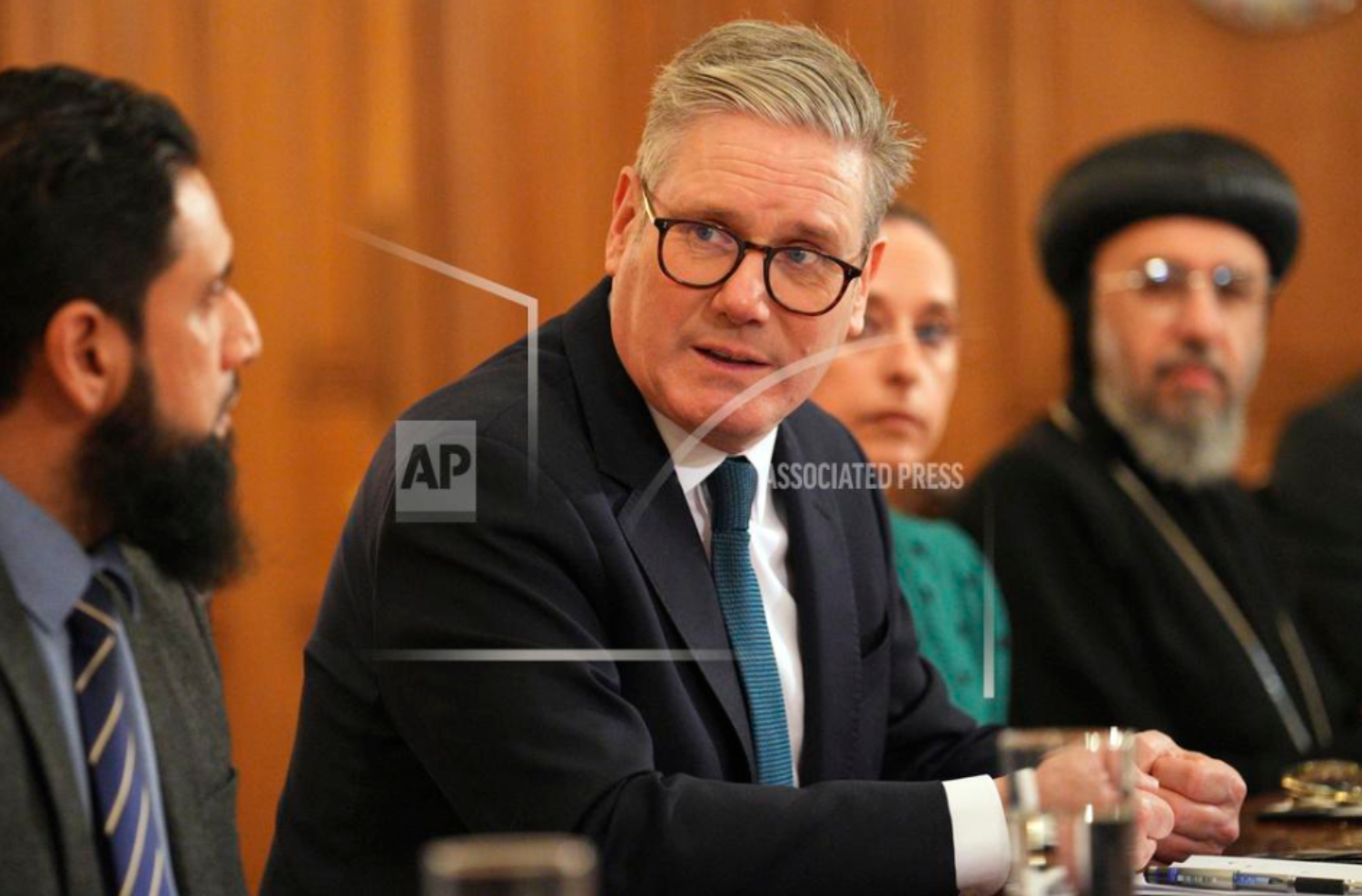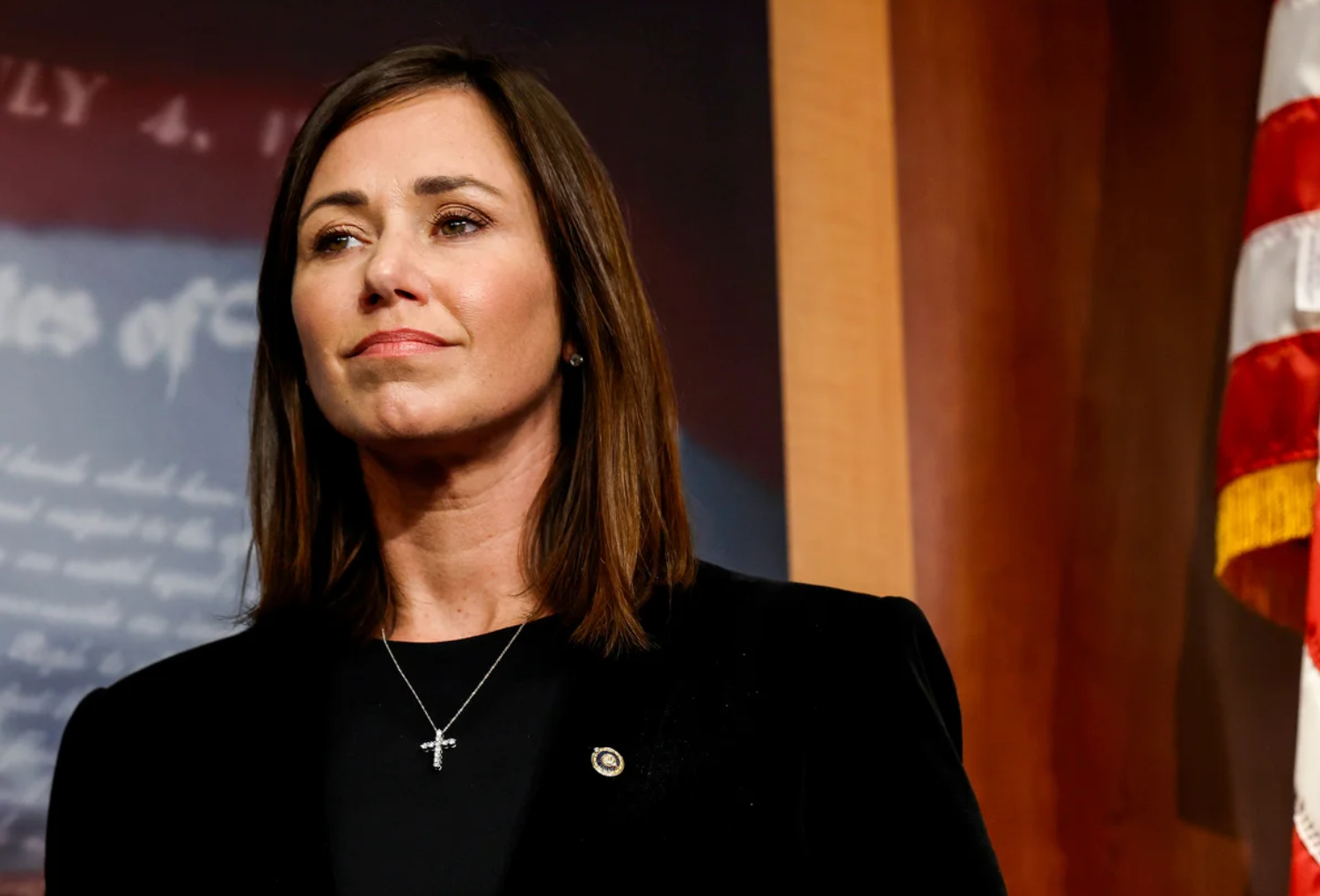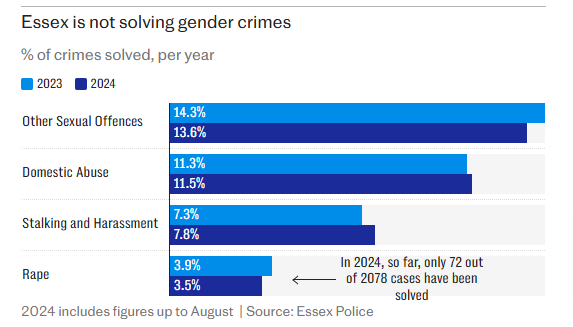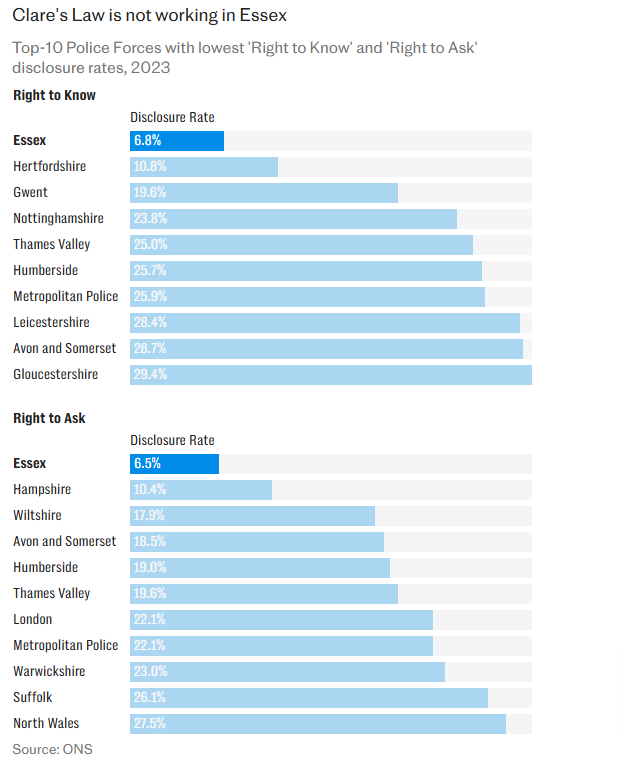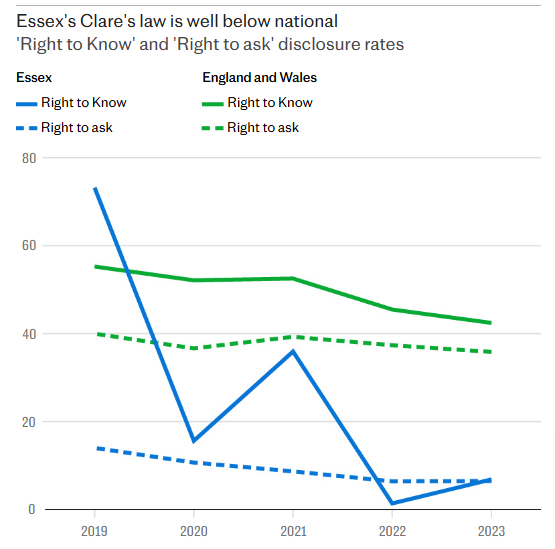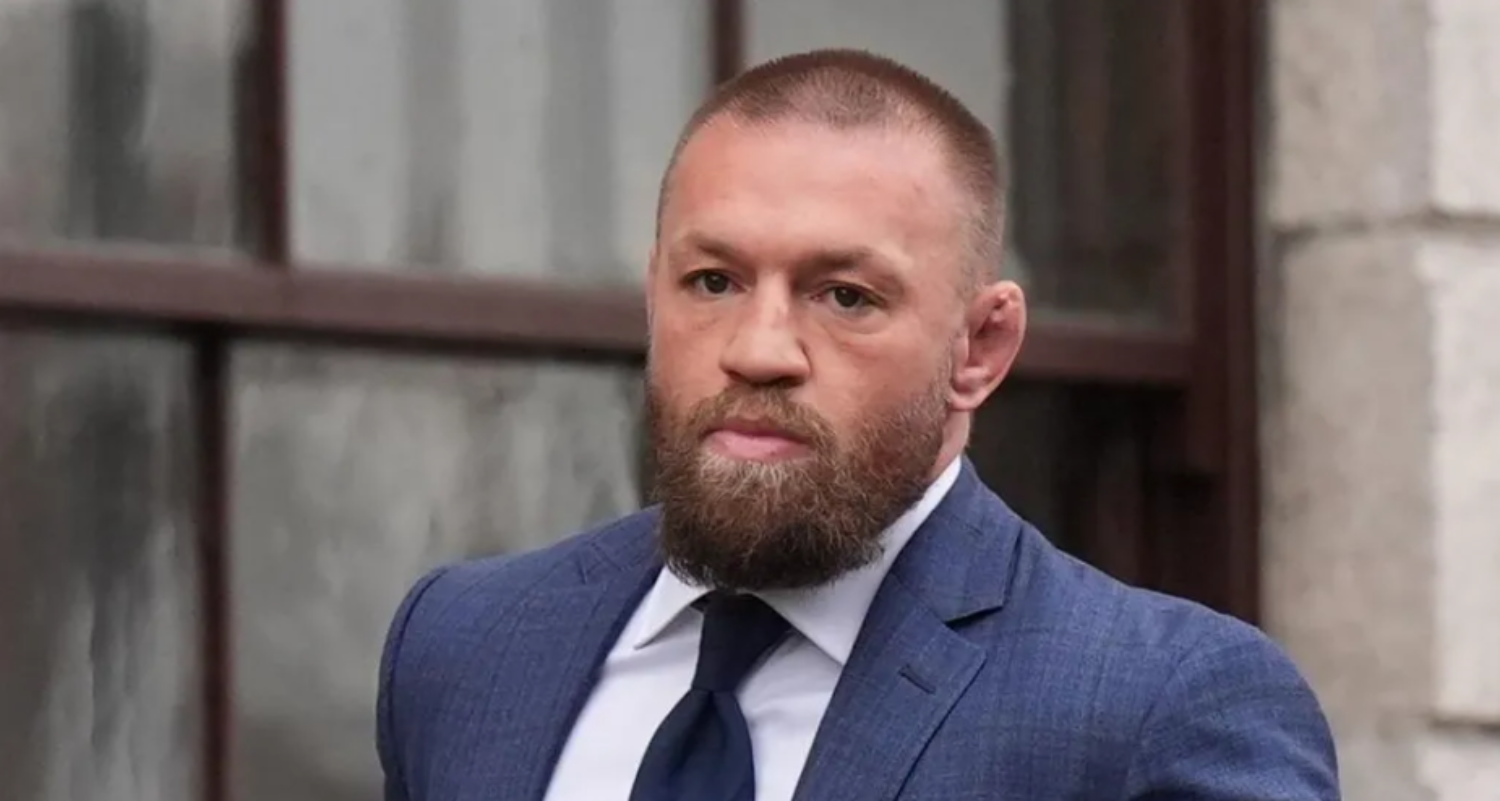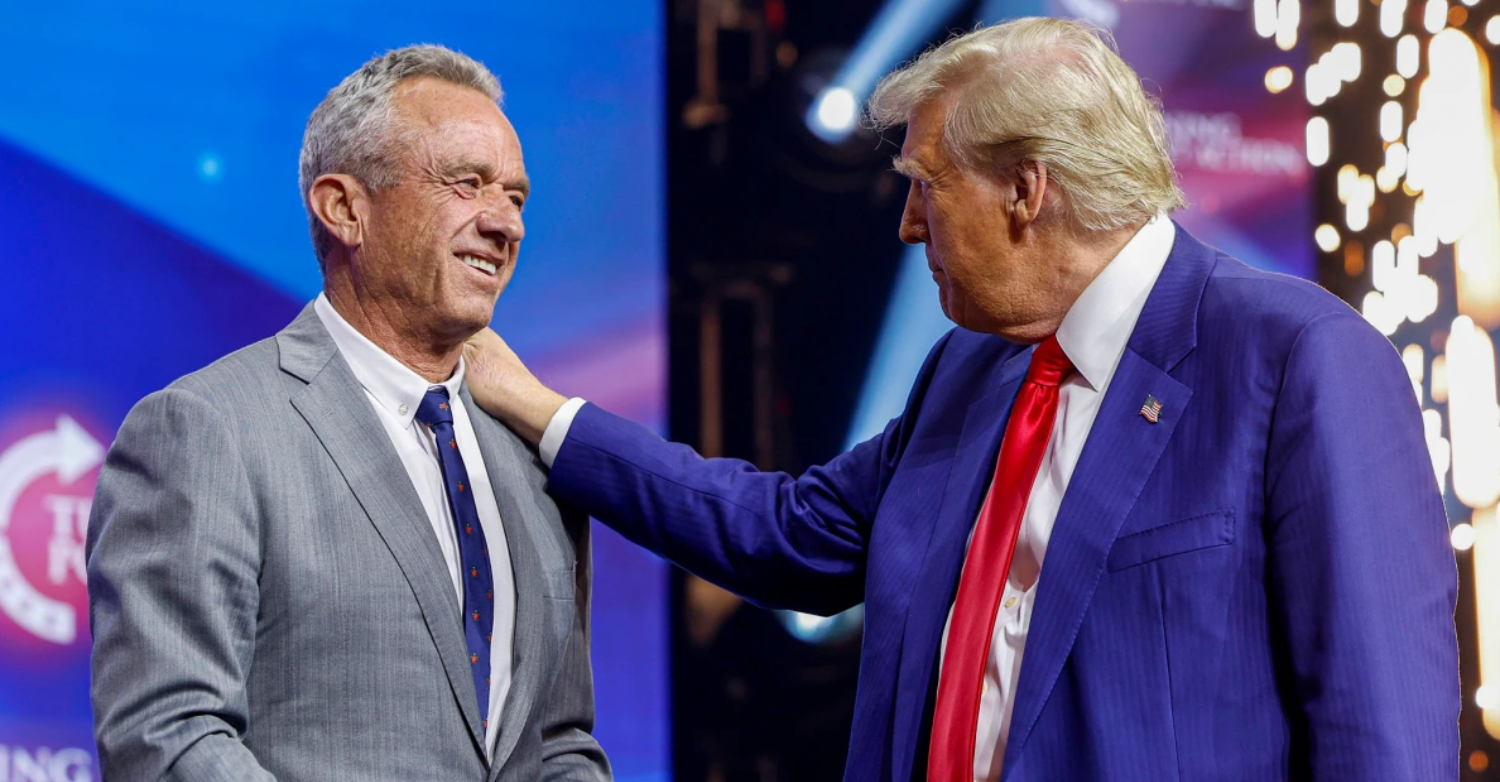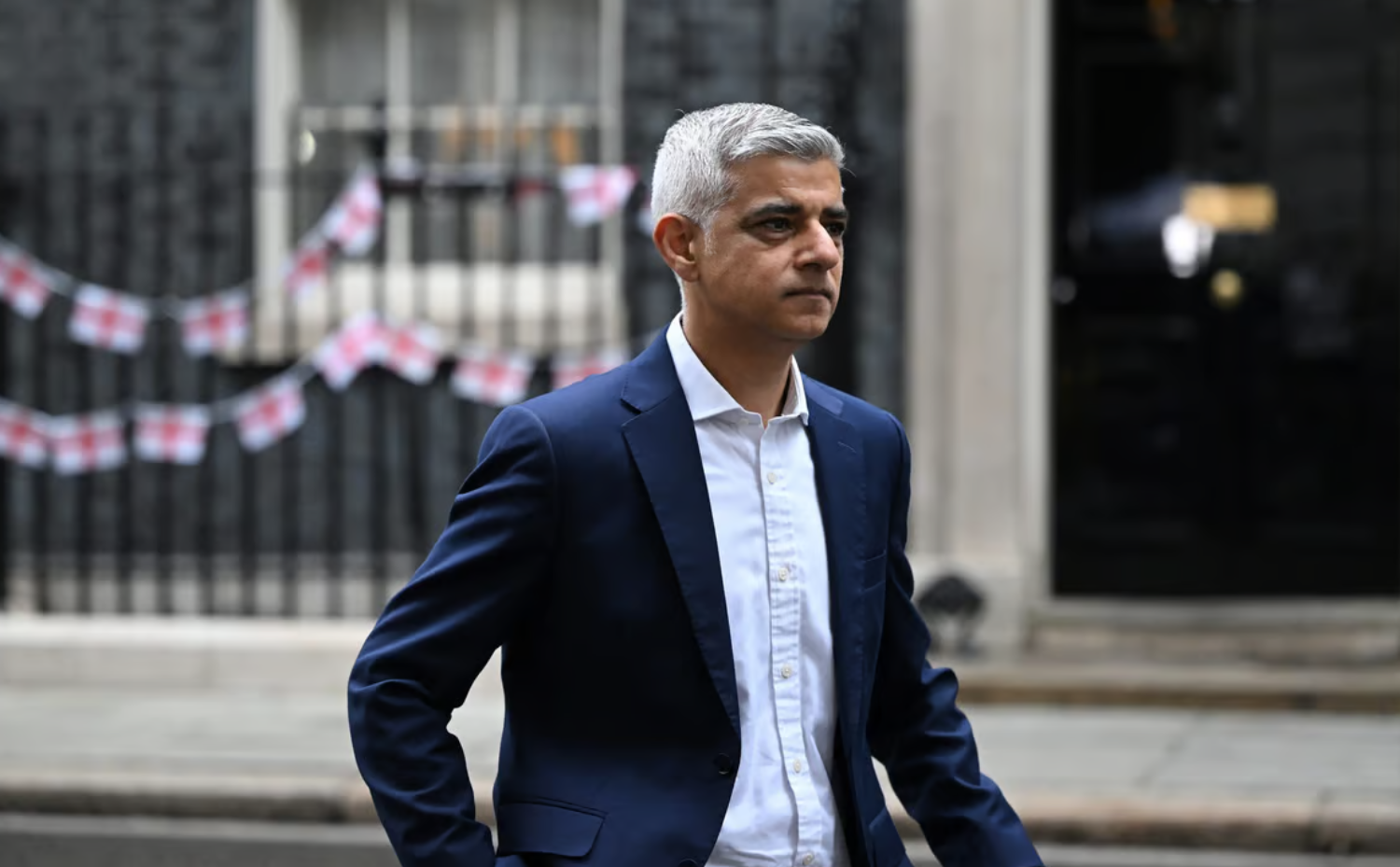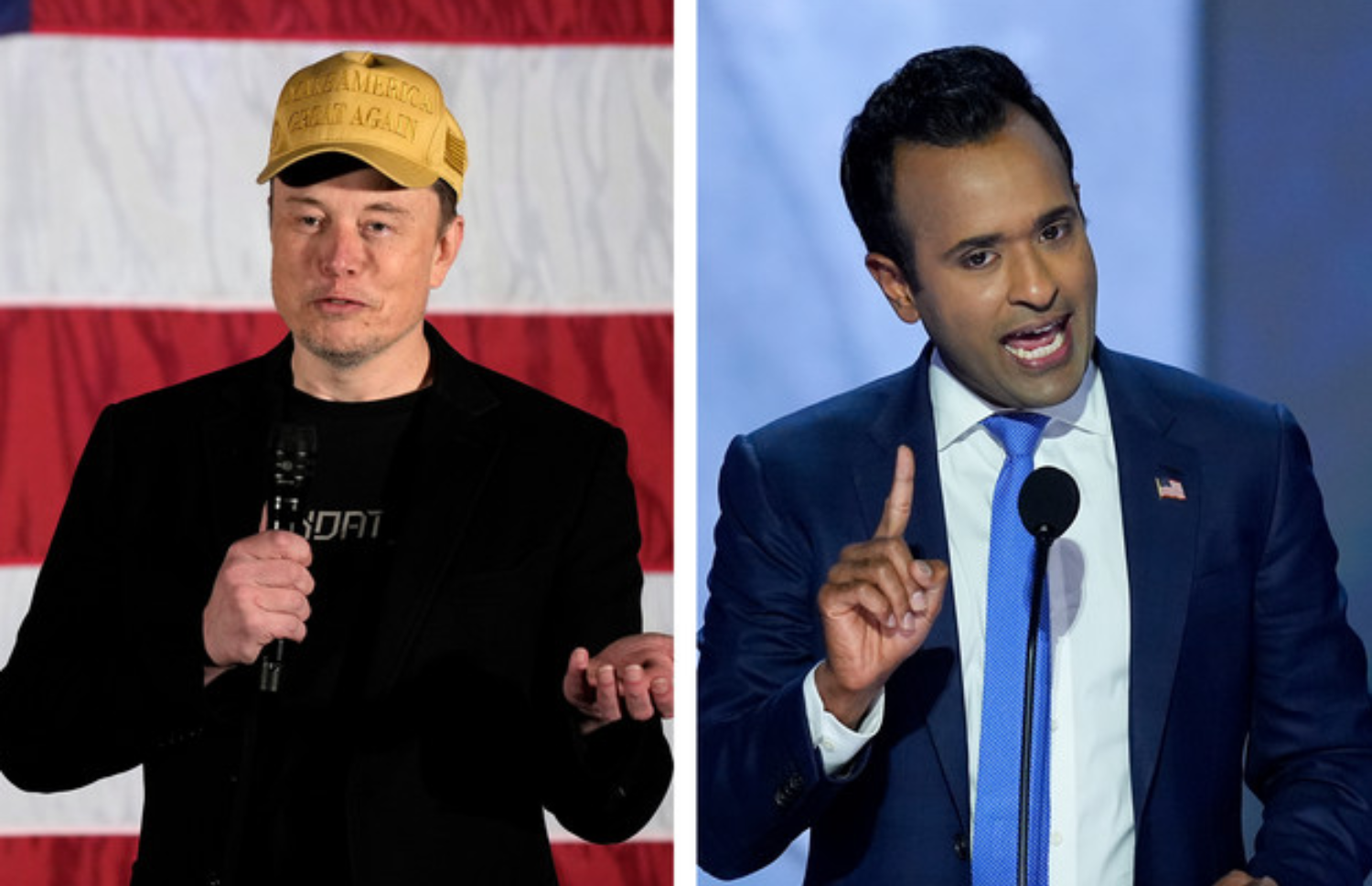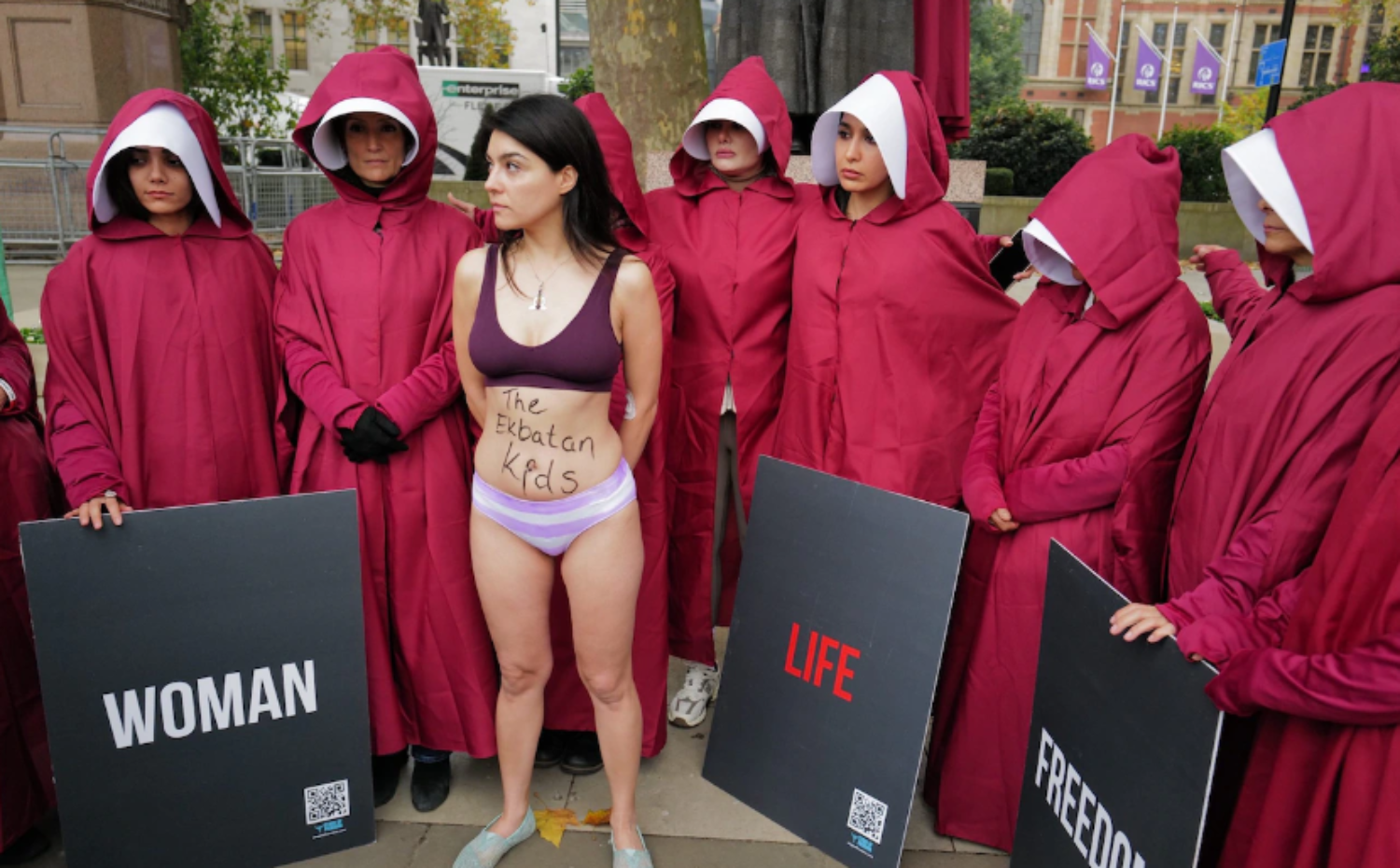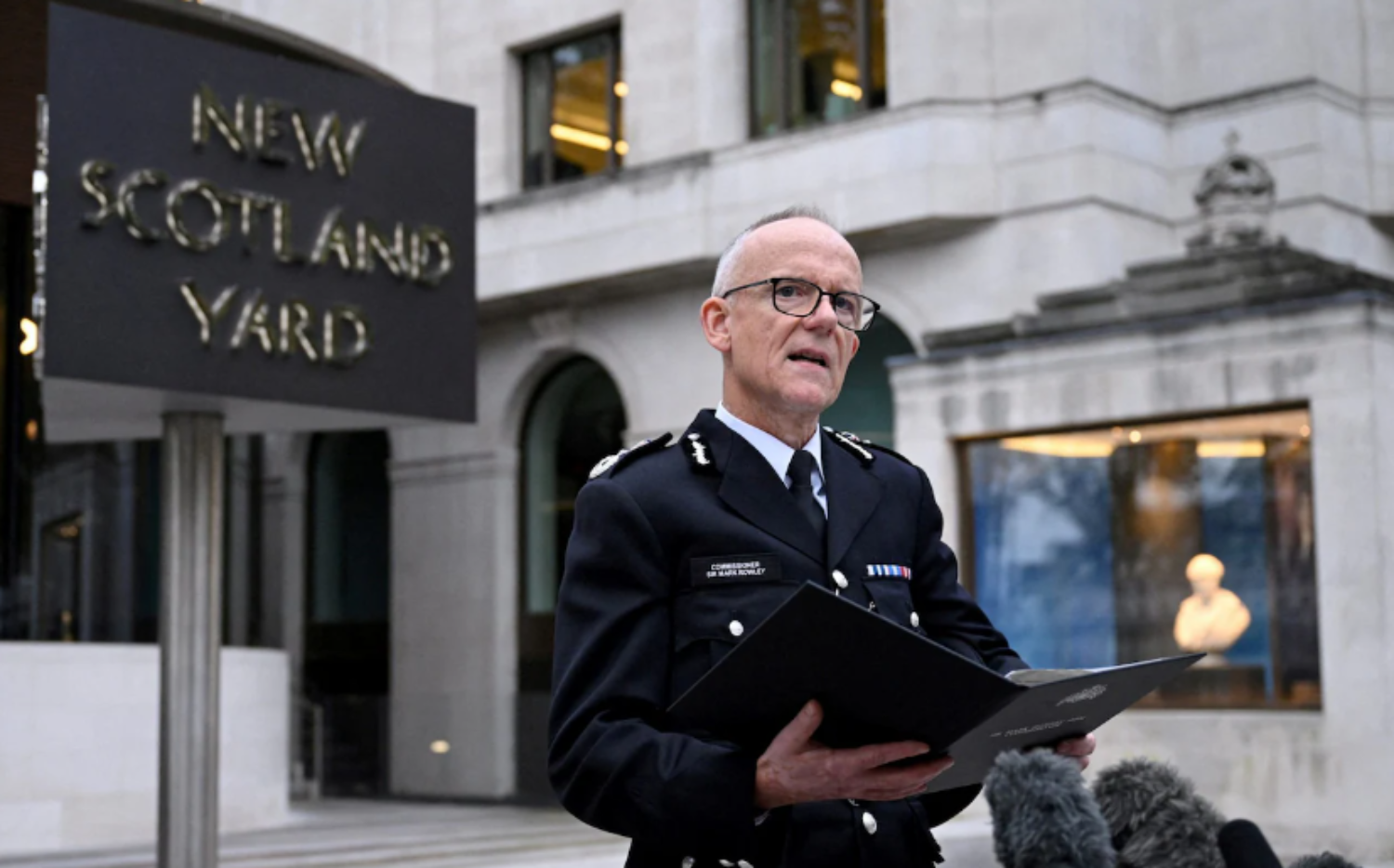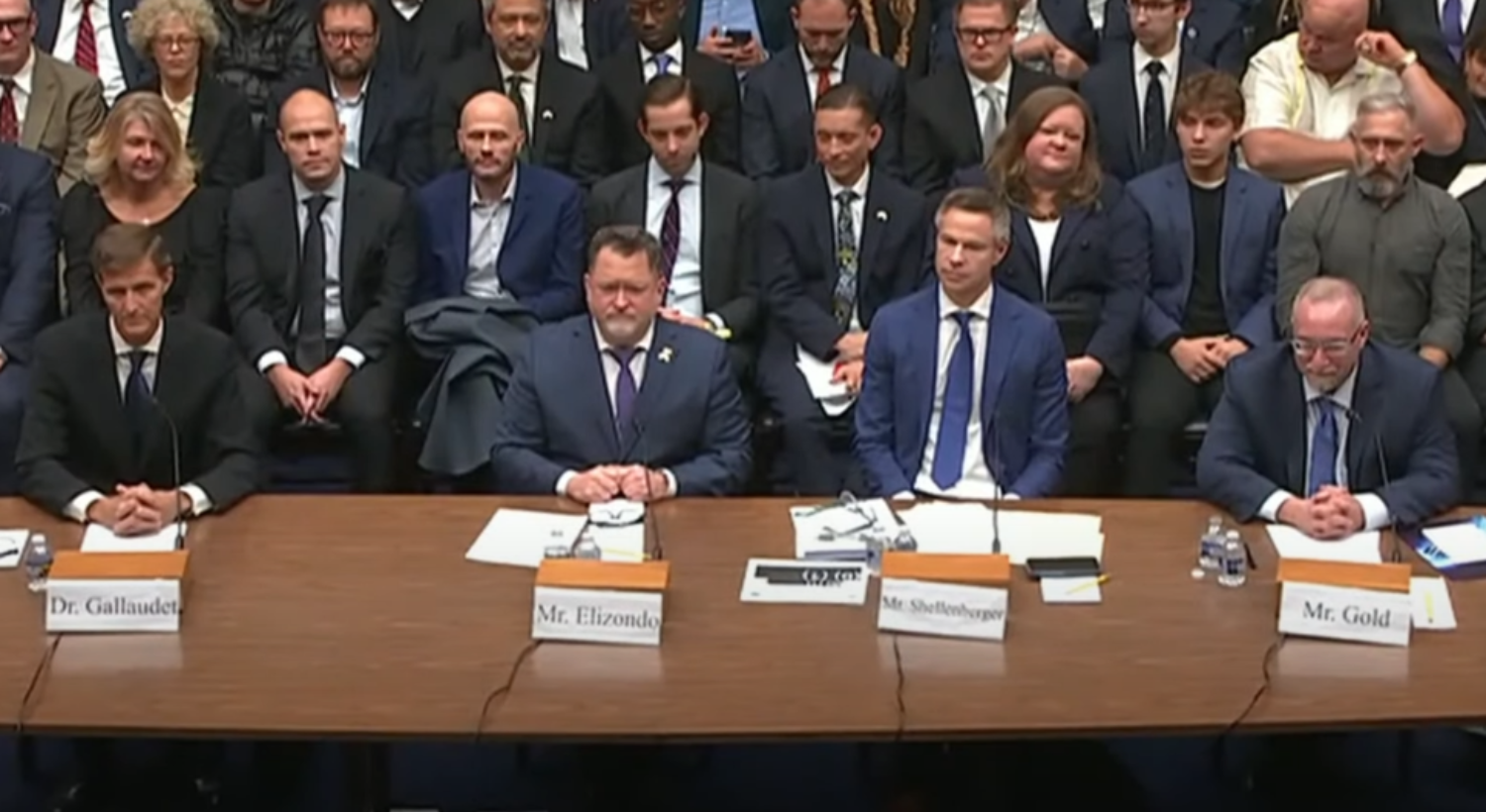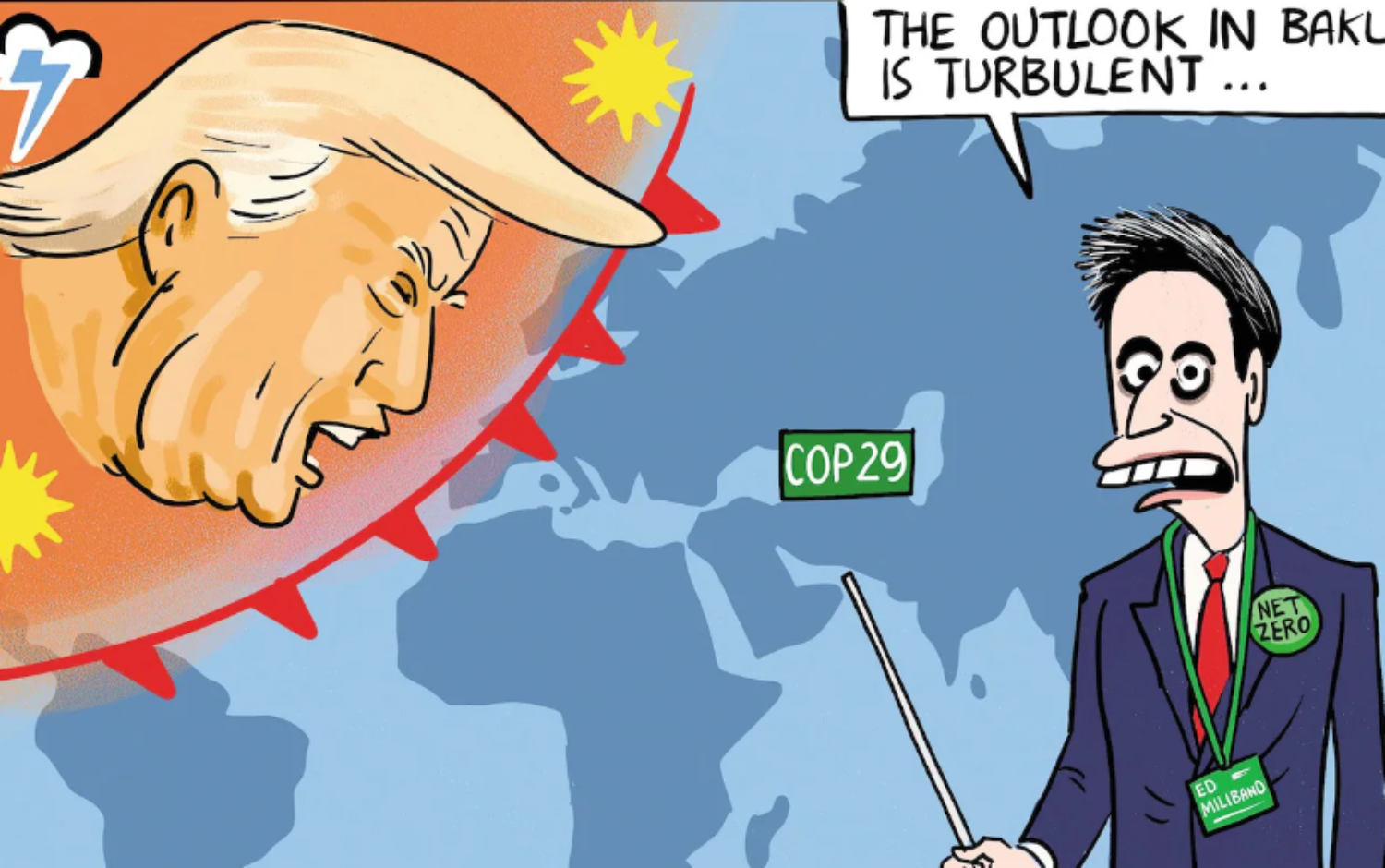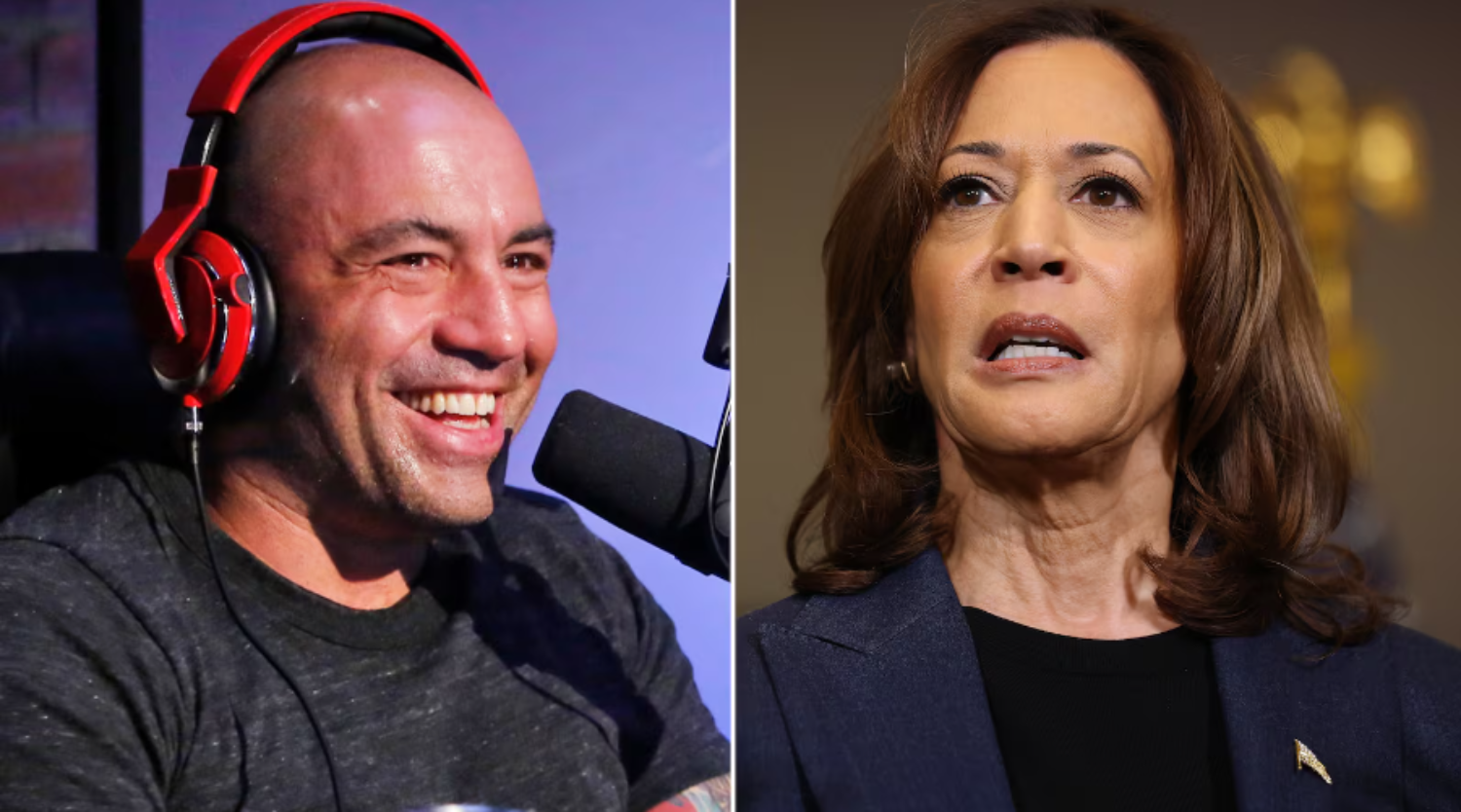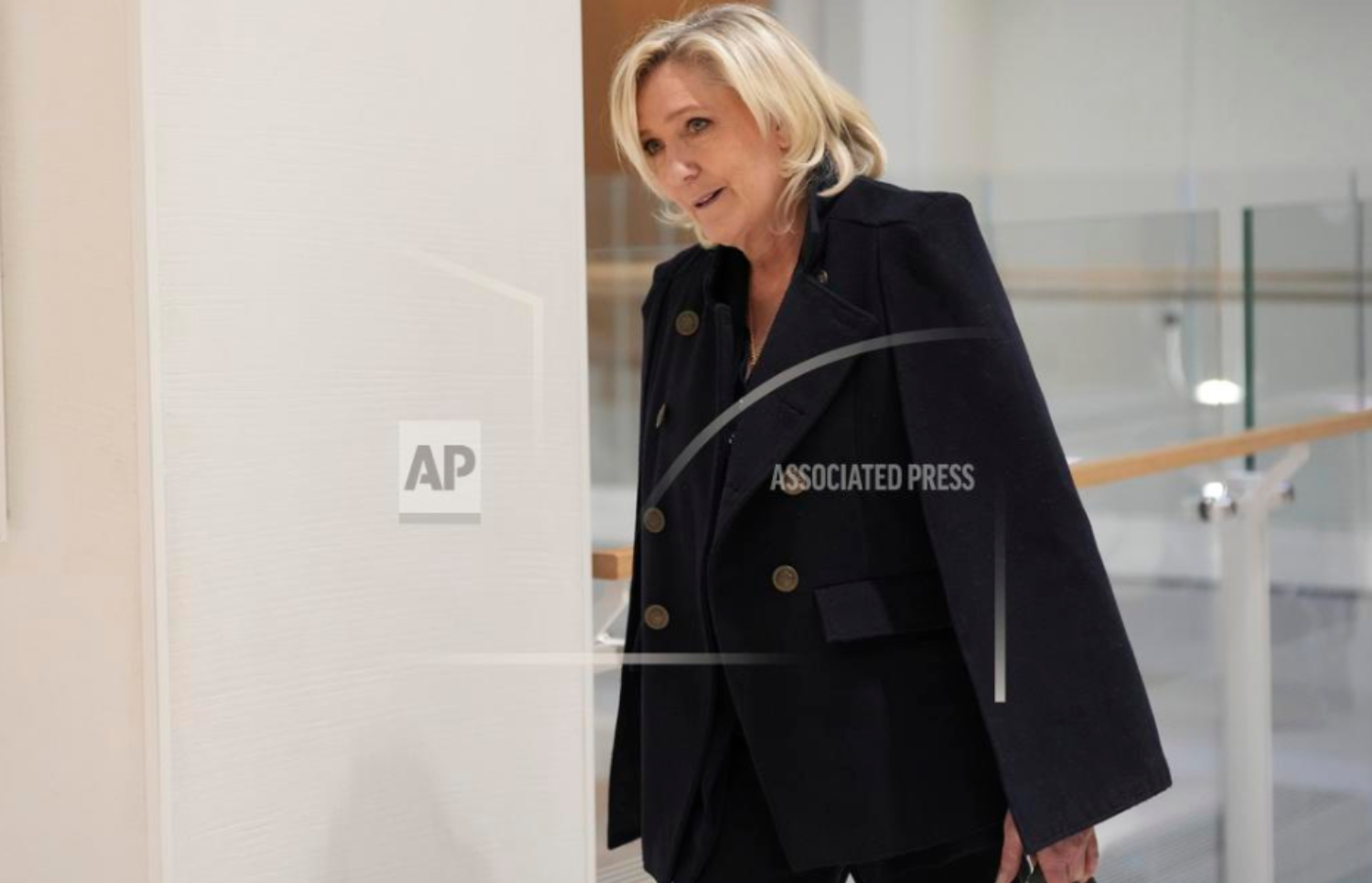-
Posts
10,778 -
Joined
-
Last visited
Content Type
Events
Forums
Downloads
Quizzes
Gallery
Blogs
Everything posted by Social Media
-
Private jet traffic to Baku, Azerbaijan, has surged as global leaders and influential figures gather for the UN’s annual climate summit, Cop29, igniting accusations of hypocrisy over the choice of high-emission travel. In the lead-up to the event, Baku’s international airport recorded 65 private jet landings, with 45 arriving on Sunday and Monday as delegates convened. This marks a significant increase from last year, when 32 private jets landed during the same period. While this count is lower than in Dubai last year or Glasgow in 2021, the surge in high-carbon flights has drawn attention, especially as high-profile attendees seek to address the global climate crisis. The optics of these arrivals have triggered criticism from environmental advocates who highlight the outsized emissions linked to private jets. Denise Auclair, representing the Travel Smart Campaign, stressed the impact of these flights, noting, “Private jets have a disproportionate impact on the environment. They are five to 14 times more polluting than commercial planes per passenger and 50 times more polluting than trains. The number of arrivals by private jet we are seeing at Cop29 puts front and center the hypocrisy of using a private jet while claiming to be fighting climate change.” Auclair added that for some executives, a single long-haul private flight can produce more CO₂ than multiple people might emit over the course of an entire year. This critique echoes findings from Linnaeus University in Sweden, where researchers analyzed over 18.6 million private flights, revealing that certain celebrities produce over 500 times the annual carbon emissions of the average person. Events such as the 2022 Qatar World Cup and last year’s Cannes Film Festival have been linked to major spikes in private jet use. In comparison, last year’s Cop28 in Dubai saw 644 private flights, which collectively emitted an estimated 4,800 tonnes of CO₂. Despite these figures, sources close to aviation operations argue there are “understandable” reasons for some dignitaries to forgo commercial travel, citing security and logistical challenges. Yet the environmental impact remains clear. Between 2019 and last year, annual private aviation emissions rose by 46 percent, reaching 15.6 million tonnes of CO₂—roughly equivalent to Nepal’s yearly emissions. Climate advocates like Alethea Warrington of the charity Possible denounce the practice. “For CEOs who claim to care about tackling the climate crisis, using a private jet to get to Cop shows blatant hypocrisy,” Warrington stated. “Travelling by private jet is a horrendous waste of the world’s scarce remaining carbon budget, with each journey producing more emissions in a few hours than the average person around the world emits in an entire year.” The conference also saw some notable absences, with leaders from several of the top 13 carbon-emitting nations, including U.S. President Biden, China’s President Xi Jinping, and Indian Prime Minister Narendra Modi, opting not to attend. Argentina’s President Javier Milei went a step further, ordering his country’s representatives to withdraw entirely from Cop29. Known for his controversial views on climate change, which he once dismissed as a “socialist lie,” Milei has also signaled the possibility of Argentina’s exit from the Paris Agreement, which mandates greenhouse gas reductions. With over 67,000 people registered, this year’s conference is the second largest in history, following Dubai’s Cop28. The gathering has underscored the urgency of addressing climate change but also highlighted ongoing challenges in aligning global commitments with the actual practices of those in power. For many critics, the arrival of private jets in such high numbers is a troubling contradiction at a moment demanding tangible action. Based on a report by The Times 2024-11-16
-
Families in England are bracing for significant council tax hikes in April, as the government confirms a cap on increases will remain at 5 percent. This move sets the stage for bills to rise substantially, with the average family facing an increase of more than £100—almost three times the current rate of inflation. Sir Keir Starmer’s press secretary clarified the government’s stance during a briefing on Wednesday, stating that the threshold allowing councils to raise taxes “isn’t changing.” This confirmation follows an exchange in the House of Commons, where Conservative leader Kemi Badenoch pressed Starmer to confirm whether the cap would be altered. Although Starmer avoided directly addressing the question, his press secretary later reiterated, “The threshold remains the same.” Under the unchanged cap, local authorities can impose a rise of up to 5 percent without requiring a referendum or special government permission. This increase far exceeds the current inflation rate of 1.7 percent. For the average band D property, council tax bills are set to climb to £2,171 for the 2024–25 financial year—an increase of £106 compared to the previous year. Households in the highest band, band H, will see even steeper hikes, with last year’s £4,342 bill rising by £217. In recent years, council tax increases were limited to 2.99 percent, with an additional 2 percent permitted for councils managing social care responsibilities. However, the ability to raise taxes by up to 5 percent has become critical for many local authorities. A survey by the Local Government Association revealed that one in four councils anticipates needing emergency financial support to avoid bankruptcy within the next two years. Despite this, some councils may hesitate to implement the full increase, given the upcoming local elections in May. Tim Oliver, leader of Surrey County Council and chairman of the County Councils Network, acknowledged the budget allocation's marginal benefits but emphasized that it falls short of resolving broader financial challenges. “The money does not eradicate councils’ funding gap,” Oliver explained, pointing to rising costs driven by the new minimum wage as an additional strain. “Therefore, councils will have little choice but to raise council tax and still will need to take difficult decisions over services to balance their budgets.” As local governments grapple with financial pressures and essential services hang in the balance, the decision to freeze the cap on council tax increases underscores the ongoing tension between fiscal responsibility and meeting community needs. For many families, the rising costs represent a growing burden amidst already challenging economic conditions. Based on a report by The Times 2024-11-16
-
U.S. Senators Katie Britt of Alabama and Jim Risch of Idaho have introduced the Stand with Israel Act, a bill aimed at countering perceived bias and actions against Israel within the United Nations. The legislation seeks to prohibit U.S. funding for any UN agency that moves to expel, downgrade, suspend, or otherwise limit Israel's participation. Senator Britt emphasized the importance of standing with Israel, particularly in light of recent events. “The UN should be pressuring Hamas to release every single hostage, not punishing Israel for defending her people and her very existence. There has been a troubling pattern of anti-Israel sentiment across the UN and its affiliated bodies that has undoubtedly undermined their credibility. Not a single dime of taxpayer money should be used to support or fuel antisemitism. It is imperative we use every tool in our toolbox to stand firm with the Jewish people and our great ally, Israel. This includes rooting out and condemning antisemitism in every corner of our own nation,” Britt stated. Senator Risch also expressed strong disapproval of efforts to challenge Israel's status at the UN, describing such attempts as inherently antisemitic. “Any attempt to alter Israel’s status at the UN is clearly antisemitic. If UN member states allow the Palestinian Authority and the Palestine Liberation Organization to downgrade Israel’s status at the UN, the United States must stop supporting the UN system, as it would clearly be beyond repair. I am disgusted this outrageous idea has even been discussed, and will do all I can to ensure any changes to Israel’s status will come with consequences,” Risch remarked. The legislation has garnered widespread support, with Senators Tom Cotton, Chuck Grassley, Bill Cassidy, and others co-sponsoring the measure. In total, 34 Republican senators have signed on, signaling a unified stance against what they perceive as UN actions undermining Israel’s position. This Senate initiative parallels bipartisan efforts in the House of Representatives, where Congressman Mike Lawler introduced companion legislation, HR 9374. Together, these bills reflect a commitment by U.S. lawmakers to reinforce their longstanding alliance with Israel and combat perceived antisemitism within international organizations. Text of the Stand with Israel Act can be found here. Based on a report by "britt.senate.gov" 2024-11-16
- 91 replies
-
- 17
-

-

-

-

-

-

-
Essex Police, the force currently investigating Telegraph columnist Allison Pearson, has faced significant criticism for its track record on protecting women. Recent figures reveal that the force has had the lowest rate of warnings about potentially abusive partners under Clare’s Law, a measure designed to protect individuals from domestic violence. Clare’s Law, named after Clare Wood, who was killed by her ex-boyfriend in 2009, enables individuals to request information about a partner’s history of abusive behavior. The law operates through two mechanisms: the Right to Ask and the Right to Know. The Right to Ask allows individuals to inquire about their own partner or someone close to them, while the Right to Know requires police to assess domestic abuse intelligence and determine whether potential victims should be informed. In Essex, the Right to Know is applied in every reported domestic abuse incident, with police evaluating whether an internal application for disclosure should be made. If approved, this process enables the proactive release of information to protect a potential victim. However, statistics from the Office for National Statistics (ONS) for the year ending March 2023 show that Essex Police had the lowest Right to Know disclosure rate in England and Wales, acting on just 6.84 percent of cases. This figure stands in stark contrast to the national average. Across England and Wales, the rate of Right to Know disclosures has dropped significantly in recent years, from 55.3 percent in 2019 to 42.5 percent in 2023. Despite the decline, the number of internal applications for disclosure under this scheme has risen sharply, increasing by 147 percent from 7,252 in 2019 to 17,925 in 2023. The Right to Ask mechanism has experienced similar trends. The rate of disclosures under this route fell from 40 percent in 2019 to 35.8 percent in 2023, even as applications quadrupled from 6,496 to 27,419 in the same period. Det Supt Matt Cornish, Essex Police’s lead on domestic abuse, acknowledged the need for improvement. “We recognize that we need to do more to support victims,” he said. He outlined the rigorous considerations involved in disclosure decisions, including whether the information is necessary to protect the person, whether there is an urgent need for the disclosure, and whether it is proportionate to prevent further crime. Legal advice is sought in complex cases to ensure decisions are made appropriately. The scrutiny of Essex Police's handling of domestic abuse cases comes amid broader criticism of the force. In July, a Channel 4 Dispatches investigation revealed that in Thurrock, Essex, 93 percent of car-related crimes resulted in no suspect being identified. This adds to the growing concerns about the force’s overall effectiveness and prioritization of resources. As Essex Police works to address these issues, the statistics highlight the challenges it faces in balancing procedural rigor with the urgent need to protect victims of domestic abuse. Based on a report by Daily Telegraph 2024-11-16
-
Elon Musk, the world’s wealthiest man, recently embraced the label of “the George Soros of the right” while joining President-elect Donald Trump at Mar-a-Lago. Known for his past criticism of George Soros, Musk appeared to relish the comparison to the influential progressive billionaire. Musk’s new moniker surfaced during a surprise visit to the A1Policy conference at Trump’s Florida resort, where he eagerly responded to a speaker’s query: “Where is the George Soros of the right?” Alongside Trump, Musk was freshly named to lead the “Department of Government Efficiency,” an initiative to streamline government operations under Trump’s administration. At the White House that day, the president-elect celebrated Musk’s new appointment, and later, back at Mar-a-Lago, Trump joked to the crowd about his rapport with Musk. “Elon won’t go home,” Trump quipped, “I can’t get rid of him. Until I don’t like him.” The evening took a lively turn when Musk and Trump joined opera singer Chris Macchio in a rendition of “God Bless America.” However, the Daily Mail noted one small hiccup in the performance: Musk, who was born in South Africa, appeared unfamiliar with the song’s lyrics, underscoring a light-hearted moment during an event blending political alignment with patriotic spirit. Musk’s embrace of his new persona signals his readiness to support Trump’s vision in unconventional ways, staking out his role as a powerful, conservative force on the right—a contrast to Soros’s lasting impact on progressive causes. Based on a report by Daily Beast 2024-11-16
-
French authorities have apprehended a suspected serial killer at a train station in Toulon, following an attempted assault on a woman aboard a train. The man’s description closely aligns with that of the primary suspect in the recent killing of a homeless man in Lyon, who was murdered after being struck by bricks thrown at his head. Toulon police identified the man by his striking resemblance to the Lyon attacker, right down to the orange shoelaces he was seen wearing. Images of the alleged Lyon assailant, captured by surveillance cameras, had circulated widely on social media since early in the week, helping the public and authorities in their search. The individual in custody is also believed to be linked to a disturbing series of attempted murders spanning multiple locations, including Évry, Strasbourg, and Dijon in France, as well as Rotterdam in the Netherlands, where another homeless man was attacked with a concrete slab. While questioned by police, the suspect reportedly identified himself as a 37-year-old national of Cameroon. Despite having no prior criminal record, he was under a deportation order due to his undocumented status in France. This arrest has ignited a fierce debate across the country regarding France’s immigration policies and the enforcement of deportation orders, known as "Obligations de Quitter le Territoire Français" (OQTF). Commenting on the situation, politician Marion Maréchal voiced her frustration on social media, writing, “The French are discovering with horror that the serial killer of homeless people, accused of 5 murders, is in fact an illegal Cameroonian under OQTF and that he was able to enter, leave and return freely to France without the slightest border control. Our lax migratory approach is criminal.” The case has led to comparisons with other recent tragedies involving individuals who, despite having deportation orders, remained in the country. Many see these crimes as avoidable and view this situation as evidence of flaws in the current immigration system. Based on a report by European Conservative | X 2024-11-16
-
In a high-profile civil trial at the Dublin High Court, Irish MMA fighter Conor McGregor faces allegations of rape from Dublin woman Nikita Hand, stemming from an incident in December 2018. McGregor, who denies the allegations, admitted in court to using cocaine on the night in question. When questioned by John Gordon SC, McGregor confirmed that cocaine was present in his car, where he, the alleged victim, and another witness were located. During a previous police interview following the alleged incident, McGregor invoked his right to silence, responding "no comment" to over 100 questions under the guidance of his lawyer, citing feelings of "shock and fear." The incident came to light after Hand accused McGregor of rape following a Christmas outing. While the Director of Public Prosecutions in Ireland declined to pursue criminal charges, Hand filed a civil case against McGregor in Dublin's High Court. During his January 2019 interview at Dundrum Garda Station, McGregor provided a prepared statement through his solicitor but refused to answer most questions directly, including whether he and Hand shared the same Crumlin neighborhood. The court reminded the jury of McGregor’s legal right to refrain from commenting, emphasizing that no inference could be drawn from his silence. Addressing his terse written statement, McGregor defended his approach, stating, “I would have loved to go to the top of the mountain with a microphone and shout from the hilltops, but because of the seriousness of the allegation I went to my lawyer and took their advice.” McGregor explained that he had been “beyond petrified” during his initial interview, as this situation was unprecedented for him. He said, “I feel I was as good, as cooperative; I took their advice, I put myself in their hands. This is alien to me; it’s the first time anything like that has ever happened to me in my life.” In his testimony, McGregor maintained his innocence, insisting, “These allegations are false. I’m here to say my piece and my truth. These allegations are lies, they’re false.” McGregor contends that he and Hand engaged in consensual sex twice, a claim she disputes, stating that he raped her. Furthermore, McGregor claims Hand also had consensual sex with his associate and co-defendant, James Lawrence, who is implicated in the case. Lawrence confirmed in his testimony that he had sex with Hand consensually on two occasions after McGregor had left the hotel room. Lawrence described Hand as flirtatious and willing, adding that she only expressed concern over a small bruise and how she would explain it to her boyfriend. Hand, however, asserts that she has no recollection of sexual relations with Lawrence, recalling only that she confided in him about her alleged assault by McGregor and became distressed as a result. When questioned about the level of distress Hand might have experienced, McGregor denied observing any signs of fear or discomfort, describing her demeanor as “enjoyment, elation, and excitement.” He further claimed that during their encounter, she was not wearing a tampon. However, gynecological assessments presented by the plaintiff’s legal team revealed that medical professionals had to use forceps to remove a tampon from Hand following the alleged incident. When asked how the tampon could have been present, McGregor responded, “Not with me.” Additionally, a paramedic who examined Hand shortly after the incident testified that she observed extensive bruising on Hand, which she described as unusually severe. Addressing whether he financially supported Lawrence's legal representation, McGregor acknowledged, "I believe I did." Under cross-examination, Lawrence denied any complicity or attempt to act as a “fall guy” for McGregor, responding, “Not in a million years.” He emphasized that with six sisters and numerous nieces, he would never support such actions if they were true. In Irish civil cases, as opposed to criminal proceedings, both the complainant and the accused are publicly named, with neither party entitled to automatic anonymity. The case continues in Dublin’s High Court, with the outcome remaining to be decided by the jury based on the evidence presented. Based on a report by BBC 2024-11-16
-

Israelis in Thailand on Alert After Security Warning
Social Media replied to webfact's topic in Thailand News
A post well over copyright infringment rules has been removed. The title along with 3 sentences only and the link please @bannork -

Israeli fans violently attacked after Amsterdam soccer match
Social Media replied to Social Media's topic in World News
Off topic report related to France removed. -
President elect Donald Trump has selected Robert F. Kennedy Jr. as his pick for the United States Secretary of Health and Human Services (HHS). Kennedy, commonly referred to as RFK Jr., comes from a prominent Democratic family; he is the son of former U.S. Attorney General and Senator Robert F. Kennedy and the nephew of President John F. Kennedy, who was assassinated in 1963. Despite his political heritage, RFK Jr. is known for his unconventional positions, notably his skepticism towards vaccines and various mainstream health initiatives, which he has advocated against in his career as an environmental lawyer. If confirmed by the Senate, RFK Jr. would assume leadership of the Department of Health and Human Services, an agency charged with safeguarding Americans' health and providing essential services, particularly for vulnerable populations. The health secretary plays a critical role as the president’s top advisor on health, welfare, and income security programs and oversees critical areas, including health research, disease prevention, and food and drug safety. The department also supervises 11 agencies, such as the Food and Drug Administration (FDA) and the Centers for Disease Control and Prevention (CDC). The FDA is responsible for food labeling and drug approvals, while the CDC leads in managing and preventing disease outbreaks. Kennedy’s views on public health and medical science, which have historically diverged from those of the CDC and FDA, could introduce significant shifts in how these agencies operate. Trump expressed strong support for Kennedy’s nomination in his official statement, which underscored Kennedy’s potential to reshape HHS. Trump said, “I am thrilled to announce Robert F. Kennedy Jr as The United States Secretary of Health and Human Services (HHS). For too long, Americans have been crushed by the industrial food complex and drug companies who have engaged in deception, misinformation, and disinformation when it comes to Public Health.” Trump’s statement further reflected his confidence in Kennedy’s vision: “The Safety and Health of all Americans is the most important role of any Administration, and HHS will play a big role in helping ensure that everybody will be protected from harmful chemicals, pollutants, pesticides, pharmaceutical products, and food additives that have contributed to the overwhelming Health Crisis in this Country.” He concluded with optimism about the potential changes Kennedy could bring, adding, “Mr. Kennedy will restore these Agencies to the traditions of Gold Standard Scientific Research, and beacons of Transparency, to end the Chronic Disease epidemic, and to Make America Great and Healthy Again!” The nomination of RFK Jr., an outspoken critic of some government health policies, as head of HHS marks a significant shift. His selection has prompted discussions about the future direction of U.S. public health, with supporters praising his dedication to transparency and critics questioning how his unconventional views might shape HHS policies. Based on a report by BBC 2024-11-15
-
A U.S. government employee, who reportedly worked with the CIA, faces serious charges related to leaking classified information concerning Israel's possible plans for a retaliatory strike against Iran. The employee, Asif Rahman, is charged with two counts of illegal transmission of national defense information following the online release of classified records about Israel's potential actions, as detailed in court documents and information from sources familiar with the case. Although Rahman’s specific role remains unclear, sources confirmed that he held a high level of security clearance and had access to sensitive information. However, they did not clarify whether he was a contractor or a direct employee of the CIA. The alleged leak took place on October 17, with Rahman purportedly transmitting the classified material from locations outside the U.S., including Cambodia, according to court records. Though the court documents do not detail the contents of the leaked materials, sources informed CBS News that the documents related directly to Israel's potential plans to strike Iran. The arrest of Rahman was initially reported by The New York Times. Following his indictment last week in the Eastern District of Virginia, Rahman is scheduled to appear in Guam federal court this Thursday as part of removal proceedings. The case is under intense investigation by federal officials, including those from the Pentagon and FBI, who began looking into the matter last month. According to CBS News sources, documents initially belonging to the National Geospatial-Intelligence Agency surfaced in a Telegram channel just as Israel was reportedly weighing a retaliatory strike against Iran. Sources confirmed the documents appeared to be authentic, adding gravity to the charges Rahman now faces. As more details emerge, Rahman’s case highlights the serious implications of unauthorized disclosure of national defense information and the potential impact on both U.S. and allied security strategies in volatile regions. Based on a report by CBS News 2024-11-15
-
London’s Mayor, Sadiq Khan, has openly labeled former U.S. President Donald Trump a "racist," asserting that Trump targeted him based on his ethnicity and religion. Khan’s statements highlight a long-standing tension between the two, dating back to Trump’s presidency, when Khan faced multiple criticisms from Trump. According to Khan, "if I wasn’t this colour skin, he wouldn’t have come for me," a claim he made while speaking on the High Performance podcast. Khan shared that Trump’s criticism felt personal, remarking, “He wasn’t coming for me because I’m five foot six. He’s coming for me for – let’s be frank – my ethnicity and my religion.” Khan has long condemned Trump’s policies, describing them as “sexist, homophobic, Islamophobic, racist.” The feud between the two gained attention in 2017 when Trump challenged Khan to an IQ test, then accused him of a poor response to the London Bridge terror attack. In a subsequent insult, Trump called Khan “very dumb” and a “stone-cold loser who should focus on crime in London.” Khan has responded by accusing Trump of "hard-Right populism" and even sanctioned the now-iconic "Trump baby blimp" to fly during Trump’s diplomatic visit to the UK. Khan’s critique of Trump extends beyond personal grievances; he views Trump’s influence on the global stage as deeply troubling. “What worries me though, it’s not about me and my family – it’s about the fact that he’s the leader of the free world,” Khan said. He expressed a sense of duty to speak out against Trump’s divisive policies. “This is the president of the USA, a country we all adore, love,” he continued, stressing that the U.S. could either be a source of “hope and love” or “hate,” depending on its leader’s choices. Reflecting on whether he would challenge Trump again, Khan was unwavering. “Would I do it again? Absolutely, because you’ve got to speak the truth with power,” he stated, underscoring the global impact of America’s policies. Khan insists that, as Mayor of London, he has a responsibility to advocate not only for Londoners but also for people affected by U.S. policies worldwide. Despite their contentious history, Khan extended a surprising invitation for Trump to visit London. "I would love Donald Trump, whether he wins or not, to come to London," Khan said, offering to show Trump the city's diversity and inclusivity. “Let me show him around our wonderfully diverse communities. Let me take him on the Pride march next summer. Let me take him to a mosque, let me take him to some of our diverse communities,” he continued, emphasizing the compatibility of Western and Muslim identities. Khan underscored that pluralism and respect for differences are integral to democracy, hoping to demonstrate that “it is perfectly compatible to be a Westerner and to be a Muslim” and that treating women with respect is essential for any leader. Through this invitation, Khan extended an olive branch, suggesting that understanding and dialogue are possible despite deep disagreements. He believes that while society is diverse, “the joy of democracy” is found in its pluralism. In Khan’s view, disagreement can be handled agreeably, and even bitter rivals can seek common ground to appreciate each other’s perspectives. Based on a report by Daily Telegraph 2024-11-15
-
The federal government is preparing for a major shift as one of Silicon Valley’s most renowned disruptors, Elon Musk, prepares to tackle bureaucracy at the highest level. President-elect Donald Trump announced that Musk would lead a new initiative called the “Department of Government Efficiency” (DOGE), intended to root out waste, fraud, and inefficiency across federal operations. The project is unprecedented, and questions remain about which parts of the government Musk’s new office will target and how seriously Washington will take the endeavor. Musk isn’t taking on this challenge alone. Joining him is Vivek Ramaswamy, a biotech investor and outspoken MAGA supporter who recently ran against Trump in the GOP primary. Both Musk and Ramaswamy come from outside the D.C. establishment and bring a fresh perspective that has the potential to radically reshape federal bureaucracy. They plan to infuse their outsider mindset into the realm of government reform, approaching it with the same disruptive mindset that has shaped Musk’s ventures in technology and industry. Trump's announcement, shared on Truth Social, described the initiative in his characteristic grandiose terms, calling it potentially the “Manhattan Project” of the current era, with the power to “send shockwaves through the system.” Trump and Musk first publicly discussed the project during a live interview on X, where Trump had previously proposed cutting $2 trillion from the federal budget. The timeline or specifics of this proposed cut remain ambiguous; if it were to be achieved annually, it would mean substantial reductions that could encompass all non-entitlement spending, including even defense. The scope of such a cut would be unprecedented, raising questions about its feasibility and the extent to which Congress, including its more conservative members, would support such an ambitious goal. Musk’s influence in Washington, however, remains uncertain. While he has pledged to support candidates aligned with his views in upcoming Republican primaries through his political action committee (PAC), his early influence has shown mixed results. Notably, Musk’s preferred candidate for Senate majority leader, Rick Scott of Florida, lost out to Senator John Thune of South Dakota, a more established GOP figure. These early signs suggest that while Musk has the ambition to steer Congress toward his efficiency goals, his power to shape leadership decisions in Washington might be more limited than anticipated. Musk’s management style—famously intense and results-driven—could redefine federal oversight if applied broadly across government agencies. Known for his tough approach at X and Tesla, Musk is likely to push for similar stringent oversight in the federal sector. Environmental programs, labor initiatives, and spending on diversity, equity, and inclusion might all face scrutiny, given Musk’s prior public statements on such topics and his preference for lean, results-oriented budgets. Ramaswamy’s plans, meanwhile, are still developing. In a recent post on X, he announced a plan to crowdsource examples of government “waste, fraud … and abuse,” signaling that DOGE might actively engage the public in identifying areas for reform. This approach underscores the project’s outsider ethos, potentially inviting fresh perspectives on federal spending and encouraging public involvement in government oversight. While proponents of government efficiency may find the project intriguing, many remain skeptical. The scale of the proposed cuts and the radical approach Musk and Ramaswamy bring may prove challenging in a city where long-standing procedures and entrenched interests often slow down or block swift changes. For Washington, this venture represents a bold experiment, one that could transform federal bureaucracy—or falter under the weight of resistance from within. Based on a report by Politico 2024-11-15
-
When Rachel Reeves steps up to deliver her first Mansion House speech, she’ll likely receive polite applause from the gathered business elite. Yet behind the scenes, an increasing number of business leaders who backed Labour before the election are now voicing serious concerns. Reeves’ budget, which involves a £25 billion increase in employers’ national insurance contributions, has many in the business community questioning the future of Labour’s pledge to be the “party of business.” In defense of the tax hike, the Chancellor has argued that companies should be able to adjust and absorb the increased cost. However, some of the UK’s largest companies are warning of rising prices and potential job losses as they attempt to safeguard shrinking profits. This stance is in stark contrast to Labour’s promises during the campaign when Reeves asserted that her party would be the champion of “wealth creation” and business. Businesses are now grappling with what they describe as a “perfect storm” of burdensome policies: tax hikes, an increased national minimum wage, and the most sweeping overhaul of workers’ rights in a generation. “You cannot just engage on the way in,” remarked the CEO of one of the UK’s largest retailers. “You have got to keep business with you. With workers’ rights, the consultation worked, but the rise in the national insurance contributions was unexpected.” Another advisor to a major FTSE 100 firm was more direct, saying, “Business is feeling very sore. Two years of supine breakfast, and the first chance they get, they give business a slap.” Business groups have begun to mobilize in response. The British Retail Consortium has warned that job losses and price hikes are “inevitable.” The Institute of Directors expressed that the budget poses a “damaging hit,” while the Confederation of British Industry voiced concerns that Labour’s budget lacks a clear “plan for growth.” In opposition, Reeves positioned Labour as more pro-business than even Tony Blair’s administration, with promises to stimulate private investment. To bolster this commitment, Labour established a British infrastructure council that brought on board leading financial players such as Lloyds, HSBC, Santander, and Fidelity. However, as the impact of Labour’s new budget settles in, some business leaders are speaking out. Andrew Higginson, chair of JD Sports, stated that Labour’s tax increases would be “too much to bear” in tandem with the minimum wage hike. “The cumulative effect of all these changes is too much for industry to bear,” he warned, “in the sense of them being able to get on and invest and grow.” Mark Glover, executive chairman of SEC Newgate UK, noted that while Labour’s emphasis on growth had been promising, the decision to increase employers’ national insurance contributions struck many as counterproductive to that goal. “They can’t quite see how that’s encouraging growth,” he said. Emma Woods, chair of the restaurant chain Tortilla, had been among those who initially endorsed Labour. But now, alongside other hospitality executives, she is voicing fears of “unprecedented damage” to the industry from rising employment costs. Adding to the discontent, Sir Tim Martin, CEO of Wetherspoons and a former Tory donor, has warned that these policies will ultimately lead to higher consumer prices. “Good economic policies require common sense and business savvy,” Martin said, emphasizing the need for an understanding of “what makes people tick.” According to him, this was “a political budget” that may dampen the optimism and “animal spirits” essential for economic growth. Initially, Labour leader Keir Starmer announced plans to personally chair five “mission delivery boards,” including one focused on growth. Yet, after the election, these boards were assigned to secretaries of state rather than Starmer himself. Despite a successful investment conference in October that brought major banks and businesses to the table, the recent budget has changed the tone. Labour’s national insurance increase disproportionately affects companies with large numbers of low-paid workers, hitting major supermarkets particularly hard. Tesco, for instance, faces a £1 billion rise in its national insurance costs over the current parliament. Sainsbury’s, Morrisons, and Asda have all raised concerns over the added financial strain. A Confederation of British Industry survey found that nearly two-thirds of 185 businesses now have a negative view of the budget, with many asserting that it will make Britain a less appealing investment destination. Compounding the situation, there is worry over potential U.S. tariffs. “We’re not in the EU, so we’re getting clobbered on the trade there,” commented a FTSE 100 advisor, adding that Donald Trump’s proposed import tariffs could spell further trouble. “We’re so screwed,” he added with a note of resignation. In the weeks and months ahead, Labour’s relationship with the British business sector will be tested as leaders evaluate how closely the party’s rhetoric aligns with its policies. For now, many in the business community remain deeply concerned about the road ahead. Based on a report by The Times 2024-11-15
-
The Guardian has announced its decision to stop posting from its official accounts on Elon Musk’s social media platform X, citing increasing concerns over the platform’s content. Formerly known as Twitter, the platform’s environment and approach to content moderation, particularly during the US election cycle, prompted the news organization to reconsider its engagement. The Guardian stated that “the benefits of being on the platform formerly called Twitter were now outweighed by the negatives,” explaining that the platform now hosts “often disturbing content.” In a message to readers, the Guardian announced, “We wanted to let readers know that we will no longer post on any official Guardian editorial accounts on the social media site X.” The Guardian had previously operated over 80 accounts on X, collectively followed by around 27 million users. Concerns over “far-right conspiracy theories and racism” have long troubled the Guardian regarding X, but the platform's handling of the US presidential election campaign brought their misgivings to a head. “This is something we have been considering for a while given the often disturbing content promoted or found on the platform, including far-right conspiracy theories and racism,” the Guardian said, adding that “the US presidential election campaign served only to underline what we have considered for a long time: that X is a toxic media platform and that its owner, Elon Musk, has been able to use its influence to shape political discourse.” The platform and Musk, who acquired it for $44 billion in 2022, have faced criticisms from anti-hate speech organizations and the EU over content moderation issues. A self-described “free speech absolutist,” Musk has allowed previously banned figures, such as conspiracy theorist Alex Jones, influencer Andrew Tate, and British far-right activist Tommy Robinson, to rejoin the platform. The Guardian clarified that readers could still share its articles on X, and the platform would occasionally feature in its live news coverage. Reporters would also continue to use X for news gathering, although official Guardian editorial accounts would be absent. Individual journalists, meanwhile, will be able to use X according to the outlet’s social media guidelines. The Guardian explained, “Social media can be an important tool for news organizations and help us to reach new audiences, but at this point X now plays a diminished role in promoting our work. Our journalism is available and open to all on our website and we would prefer people to come to theguardian.com and support our work there.” Responding to the news, Musk labeled the Guardian “irrelevant” and a “laboriously vile propaganda machine,” adding a touch of his characteristic, outspoken criticism to the ongoing public debate over his platform's direction and standards. Based on a report by The Guardian 2024-11-15
-
Iran has announced the opening of a mental health clinic in Tehran aimed at "treating" women who choose not to wear the hijab, intensifying government efforts to quell resistance following the nationwide "Woman, Life, Freedom" protests that erupted in 2022. The clinic, called the Clinic for Quitting Hijab Removal, is the Islamic Republic's latest strategy to curb female dissent. According to Mehri Talebi Darestani, the clinic director, the facility will provide "scientific and psychological treatment" for young women, teenagers, and others struggling with what she describes as "social and Islamic identity." She further stated that the clinic would aim to promote "dignity, modesty, chastity, and hijab" and that attendance would be "optional." Oversight of the clinic falls under Iran's Headquarters for Enjoining the Good and Forbidding the Evil, an agency tasked with enforcing Islamic standards and whose actions have drawn international condemnation. This department, led by Mohammed Saleh Hashemi Golpayegani and operating under Supreme Leader Ayatollah Ali Khamenei's direction, has been sanctioned by the UK and other nations for severe human rights abuses, particularly toward women who do not conform to strict Islamic dress codes. A recent incident at Tehran's Islamic Azad University underscores the intensifying repression of anti-hijab dissent. A female student reportedly stripped to her underwear in protest against the hijab requirement, only to be labeled mentally ill and committed to a psychiatric facility. This form of protest, which gained momentum after the death of Mahsa Amini in the custody of Iran’s morality police in 2022, continues despite the Iranian government’s efforts to suppress it through measures such as heightened surveillance, increased morality police presence, and barring unveiled women from public spaces like malls and parks. The United Nations has labeled Iran's treatment of women as "gender apartheid." The repercussions of the anti-hijab movement have extended beyond everyday citizens to include celebrities and public figures. Some, including actresses Afsaneh Bayegan, Azadeh Samadi, and Leila Bolukat, were ordered to undergo weekly psychiatric evaluations and to carry mental health certifications. Other punishments included freezing bank accounts and imposing travel restrictions. Last year, four Iranian psychiatric associations publicly condemned the government's practice of labeling women who reject the hijab as mentally ill. In an open letter to Iran’s chief justice, Gholamhossein Mohseni Ejei, the associations stated: "The diagnosis of mental disorders is within the competence of a psychiatrist, not a judge, just as the diagnosis of other diseases is in the competence of doctors, not judges." Amnesty International has also been critical of Iran's hijab enforcement. In March, Diana Eltahawy, Amnesty's Middle East and North Africa director, condemned the government’s actions, describing them as "a sinister attempt to wear down resistance to compulsory veiling in the wake of the 'Woman, Life, Freedom' uprising." She accused Iranian authorities of "terrorizing women and girls by subjecting them to constant surveillance and policing, disrupting their daily lives and causing them immense mental distress." Eltahawy added that these "draconian tactics" include confiscating vehicles, stopping women drivers, and imposing harsh punishments such as flogging and imprisonment. The opening of Tehran’s Clinic for Quitting Hijab Removal symbolizes the government’s continued determination to enforce strict religious conformity, despite widespread domestic and international opposition. Based on a report by Daily Telegraph 2024-11-15
-
Metropolitan Police Commissioner Sir Mark Rowley has voiced strong concerns about the severe budget cuts he anticipates under Labour’s financial plans, warning of “eye-watering cuts” to the level of public service his officers can provide. In a recent interview on BBC Radio 4’s *Political Thinking* podcast, Sir Mark expressed being "deeply troubled by the situation we appear to be heading towards," describing the difficult future he envisions for the police force amid cumulative financial constraints. Britain's top police officer highlighted how previous budget reductions have already stretched resources thin. Combined with the newest public sector spending targets, these cuts could bring about “difficult choices” for his force, potentially affecting front-line services. Sir Mark acknowledged the tight financial environment but stressed that the severity of these changes would surpass anything that could be managed through typical efficiency measures. “The Chancellor has been very clear – it’s a difficult public sector context,” he said, acknowledging the broader pressures on government spending. Sir Mark noted that together, these changes mark “a dramatic change in budgets and of a scale that’s never going to be absorbed by efficiencies.” According to him, the magnitude of these cuts will inevitably impact the services the Metropolitan Police can deliver to Londoners, warning that these budget reductions cannot be met simply by internal savings. Discussing the challenges ahead with host Nick Robinson, Sir Mark emphasized that almost all possible efficiencies have already been realized, leaving “little, if any, scope left” for further savings without compromising front-line services. Based on a report by Daily Telegraph 2024-11-15
-
A recent U.S. Congressional hearing on Unidentified Anomalous Phenomena (UAPs), formerly known as UFOs, revealed startling information about a mysterious "white orb" observed emerging from the ocean off the coast of Kuwait. Journalist Michael Shellenberger testified before the House of Representatives, describing the incident as captured on a high-definition video found within the Department of Defense's secure network. The footage, reportedly filmed from a helicopter, shows the orb rising from the sea roughly 20 miles offshore. Midway through the 13-minute video, another orb briefly appears before swiftly vanishing, adding to the intrigue surrounding the event. Shellenberger, founder of the Public news service, shared that he had learned of this video only recently from a credible source who found it on the Department of Defense's classified network, SIPRNet. This network is typically reserved for transmitting sensitive information, suggesting the video's content is taken seriously within military and defense circles. The revelation left Congress members both intrigued and alarmed, hinting at the possibility of highly advanced, unidentified technologies in operation. During the hearing, Representative Nancy Mace, who co-chaired the session, raised eyebrows when she presented a classified 12-page document reportedly detailing a secretive UAP crash-retrieval program called "Immaculate Constellation." The document, according to Shellenberger, was provided by a whistleblower with ties to the U.S. government, suggesting that the executive branch may have managed UAP incidents for years—if not decades—without informing Congress. Mace, defying any warnings, entered the report into the Congressional record, adding, "Come at me, bro," in response to potential backlash for disclosing the program's name. The hearing, titled *"Unidentified Anomalous Phenomena: Exposing the Truth,"* forms part of an ongoing investigation into the U.S. government’s awareness of UAPs. The House Oversight Committee's Subcommittee on Cybersecurity, Information Technology, and Government Innovation heard from experts about objects performing extreme maneuvers over sensitive military and energy sites. Some of these objects reportedly reach speeds faster than any known military technology, enduring forces over 3,000Gs and even maneuvering underwater at speeds that exceed U.S. submarine capabilities. Such performances have led many to question whether these UAPs are indeed advanced technological achievements from foreign entities or something altogether unknown. Former Department of Defense official Luis Elizondo provided more insight, responding to queries about whether these objects could be controlled through a "mind-body connection." Elizondo affirmed that these objects seemed to be "intelligently controlled," reacting almost instinctively to human movement. He emphasized that the observed vehicles were capable of maneuvers exceeding the limits of current military technology, stating, “We are talking about technologies that outperform anything in our [military] inventory.” Elizondo further suggested that sufficient data exists to link UAP sightings with sensitive U.S. sites, including military and nuclear installations, as well as Department of Energy facilities. In an age of advancing technology and increasing transparency, these revelations have raised pressing questions about national security and the existence of other intelligent life. The session left some officials in awe, as Elizondo remarked, "We are not alone in the cosmos." As further details emerge, the implications for both the U.S. government and the scientific community are likely to be profound, reshaping perspectives on technology, security, and humanity's place in the universe. Video of a previous Senate subcommittee on Emerging Threats and Capabilities on April 19, 2023, that contained an Orb-shaped UFO seen over Iraq Based on a report by Sky News 2024-11-15
-
As global leaders gather for COP29 in Azerbaijan, Britain’s energy policies serve as a troubling example of what not to do. Despite the Energy Secretary Ed Miliband’s claim that the world increasingly looks to Britain as a model, this observation may stem more from bewilderment than admiration. Britain's energy policies over the last few decades have led to exorbitant industrial energy prices, reliance on imported power, and the erosion of its manufacturing base. This scenario paints a stark picture of what can happen when policies aimed at environmental goals are poorly executed, with significant impacts on both consumers and industries. One of the clearest indicators of Britain’s energy policy failure is the country’s growing reliance on importing electricity from Europe. This dependence results in job losses, diminished energy security, and a transfer of technical expertise to competing nations. As older power plants on the continent shut down, the UK may find itself vulnerable, increasingly dependent on international energy supplies that may not always be available. Data shows that net imports of electricity for Britain reached 26.3 terawatt hours (TWh) from January to September, setting a new record. Imports now cost the country £250 million a month and account for approximately 20 percent of its total electricity supply—a share that could grow to one-third by 2030. British ministers often tout the reduction of domestic emissions as evidence of progress, yet they omit the emissions tied to the electricity Britain now imports. Since these emissions occur overseas, they do not appear in the UK’s statistics. In essence, Britain is offshoring its emissions while simultaneously sacrificing energy independence and jobs. The roots of these policy failures span decades and administrations, with repercussions that have affected the country’s competitiveness and overall economic well-being. Industrial energy prices in Britain have more than tripled since 2004, even before the recent energy crisis prompted by the war in Ukraine. Since 2019, electricity prices have doubled, driving many manufacturers to relocate in search of lower costs. Over 200,000 manufacturing jobs have been lost since 2010, and manufacturing’s contribution to GDP has halved since the 1990s. Successive British governments, from Tony Blair’s to Theresa May’s, followed EU directives to close coal and oil-fired plants without replacing them with sufficient, reliable alternatives. These closures were driven by the need to reduce emissions but were implemented without viable backup, relying instead on intermittent wind and solar sources. Britain’s electricity generation capacity has been in decline since the 1990s, marking the end of an era when it last enjoyed a power surplus. Today, per capita electricity generation in Britain is only two-thirds of France’s output and barely over a third of what is generated in the U.S. While French businesses enjoy energy costs 60 percent lower than their British counterparts, UK firms pay almost four times as much per unit of power as American companies, and households pay three times as much. To address the crisis, the UK must reduce its reliance on foreign power and prioritize building reliable, home-grown energy sources. This includes expediting the construction of new nuclear plants, a sector that Britain once led globally. France, in contrast, has consistently invested in its nuclear infrastructure, generating 70 percent of its power from nuclear plants and keeping energy costs manageable. Meanwhile, Britain’s last nuclear plant, Sizewell B, was completed in 1995. Hinkley Point C, expected to start generating electricity over 30 years later, marks a painfully slow return to nuclear development. The UK’s slow progress in energy infrastructure is hampered further by extensive bureaucracy. Environmental regulations and layers of red tape discourage private developers from investing in new power plants, particularly small modular reactors (SMRs) that could provide more localized and flexible generation. Ultimately, Britain’s approach to energy policy has come at a high cost for households, industry, and the economy at large. This winter, the UK will rely heavily on imported power to maintain supply, with energy security reduced to a question of whether foreign suppliers can meet demand. Although British officials speak about energy security, the reality is one of increasing dependence and reactive measures. Ministers are unable to offer any clear answer on when energy costs will fall, a critical question given that Britain’s economic growth and productivity rely heavily on affordable energy. Without competitive energy prices, the UK risks further stagnation, with reduced funding for key public services and investments. In the end, while Britain’s energy policies might be a valuable lesson for other nations, the cost is being paid by British households and industries. At COP29, Miliband may indeed be doing the world a “favor” by demonstrating what not to do, but this comes at a substantial cost to the UK itself. Based on a report by Daily Telegraph 2024-11-15
-
A senior adviser to Kamala Harris’ campaign, Jennifer Palmieri, recently revealed new insights into why the Vice President opted not to appear on Joe Rogan's podcast—a decision that sparked debate among political observers and campaign staff alike. Speaking at a Clearing House conference in New York City on Wednesday, Palmieri, a senior adviser to Harris’ husband Doug Emhoff, explained that internal resistance from some progressive members of Harris’ team played a significant role in the decision. According to the *Financial Times*, Palmieri stated, “There was a backlash with some of our progressive staff that didn’t want her to be on it.” Harris’ decision to forego the interview has been a point of criticism among political pundits, especially after former President Donald Trump’s well-received appearance on Rogan’s show, which drew significant attention from male voters. Many analysts believe Harris could have benefited from connecting with Rogan’s large, predominantly male audience—a demographic that, as critics point out, could have been valuable heading into Election Day. Palmieri elaborated on the tense dynamic that arose once Harris began considering the interview, suggesting that the situation became complicated for Rogan as well. “Because all of a sudden he’s on his heels about how his audience is going to react to this, and the demands that they were going to put on him to be tough on her,” she said, hinting that Rogan might have faced pressure to challenge Harris assertively if she had agreed to appear. While Harris has yet to publicly address her decision to pass on the opportunity, the issue has stirred speculation over whether it was a missed chance for her campaign to engage a broader base of voters. Based on a report by Daily Beast 2024-11-15
-
The Paris prosecutor has requested a five-year prison sentence and a five-year ban from public office for French far-right leader Marine Le Pen in a high-profile case that could impact her bid for the 2027 presidential election. Le Pen, along with 24 others, stands accused of misappropriating European Union funds intended for parliamentary work, redirecting them to pay party staff in France. The trial, nearly a decade in the making, centers on allegations that Le Pen and her colleagues used EU parliamentary funds to cover salaries for staff who were primarily working for the National Rally (RN), formerly known as the National Front. On Wednesday, the Paris prosecutor demanded that Le Pen face a €300,000 fine, along with the prison sentence and political ban. The prosecutor's request included provisional execution, meaning that if Le Pen were found guilty, she would be barred from running in future elections, even if she chose to appeal. The RN, buoyed by a strong showing in the recent European elections, is now under significant scrutiny as it attempts to reframe itself in the public eye. Prosecutor Nicolas Barret emphasized the need for accountability, stating, “The law applies to all.” Barret underscored that the proposed ban would “prohibit the defendants from running in future local or national elections,” while he also sought a convertible sentence for at least two of the five years, allowing Le Pen the possibility of partial release. Seated in the front row, Le Pen reportedly listened as Barret laid out the penalties that could change the course of her political career. Later, Le Pen argued that the prosecution was an attempt to rob French citizens of their choice in leadership, stating, “I think the prosecutors’ wish is to deprive the French people of the ability to vote for who they want.” The controversy dates back to 2015, when the alleged misuse of funds first surfaced. The claims involve the period between 2004 and 2016, when prosecutors assert that parliamentary assistants were exclusively working for the party rather than for European legislative purposes. European Parliament authorities estimate that the fraudulent contracts cost the legislature around €3 million, of which the RN has already repaid €1 million, although the party insists this reimbursement is not an acknowledgment of wrongdoing. During the trial, Le Pen denied any wrongdoing, asserting, “I have absolutely no sense of having committed the slightest irregularity, or the slightest illegal act.” When questioned about how she chose her parliamentary assistants and their specific responsibilities, Le Pen gave vague responses, sometimes indicating she could not recall the details. Her denial of guilt has remained consistent as she maintains that her actions were in line with her responsibilities. Should she be convicted, Le Pen retains the right to appeal, although the provisional execution measure would enforce her ineligibility for elections during the appeal process. The stakes are high for Le Pen and her party as the RN looks to shed its past and appeal to a broader base ahead of upcoming elections. Based on a report by the Guardian 2024-11-15
-
Repetitive criticisms of the Asean News Item have been removed @Chomper Higgot 17. ASEAN NOW news team collects news articles from various recognised and reputable news sources. The articles may be consolidated from different sources and rewritten with AI assistance These news items are shared in our forums for members to stay informed and engaged. Our dedicated news team puts in the effort to deliver quality content, and we ask for your respect in return. Any disrespectful comments about our news articles or the content itself, such as calling it "clickbait" or “slow news day”, and criticising grammatical errors, will not be tolerated and appropriate action will be taken. Please note that republished articles may contain errors or opinions that do not reflect the views of ASEAN NOW. If you'd like to help us, and you see an error with an article, then please use the report function so that we can attend to it promptly.
-
Two U.S. Navy destroyers, USS Spruance (DDG-111) and USS Stockdale (DDG-106), were targeted by Houthi forces with a series of missiles and drones as they exited the Red Sea and entered the Gulf of Aden through the Bab el-Mandeb Strait, the Pentagon reported on Tuesday. Pentagon Press Secretary Maj. Gen. Patrick Ryder confirmed that Houthi forces launched at least eight drones, five anti-ship ballistic missiles, and three anti-ship cruise missiles at the two destroyers. The U.S. warships successfully intercepted all projectiles, with no reported injuries or damage to either vessel. The incident marks the second attack by Houthi forces on these destroyers, which were also targeted by Houthi missiles in late September, along with the USS Indianapolis (LCS-17). The Houthis, who are aligned with Iran, have increased their missile and drone capabilities in recent years, frequently targeting vessels and other military assets in the region as a part of the broader conflict in Yemen. Brig. Gen. Yahya Sare’e, a spokesman for the Houthis, claimed that the recent attacks were successful. In a post on social media platform X, he also asserted that Houthi forces had attacked the aircraft carrier USS Abraham Lincoln (CVN-72) in the Arabian Sea. However, Ryder stated he had no information regarding an attack on the Lincoln. According to USNI News' Fleet Tracker, USS Abraham Lincoln was stationed in the Gulf of Aden as of Tuesday. Both Spruance and Stockdale were previously operating independently in the Red Sea under Operation Prosperity Guardian. On Monday, however, the two ships joined the Abraham Lincoln strike group for enhanced regional security. The Bab el-Mandeb Strait is a critical chokepoint connecting the Red Sea and the Gulf of Aden, making it a strategically significant route for international trade and naval operations. In recent months, tensions in the region have heightened, with Houthis conducting multiple missile and drone strikes in the area, creating additional pressure on U.S. forces to maintain security in key waterways. The Pentagon has yet to release further details, and U.S. Central Command has not issued an official statement on the attack. However, these continued confrontations highlight the ongoing challenges in securing vital maritime routes in a region fraught with political and military instability. Based on a report by US Naval Institute 2024-11-14



